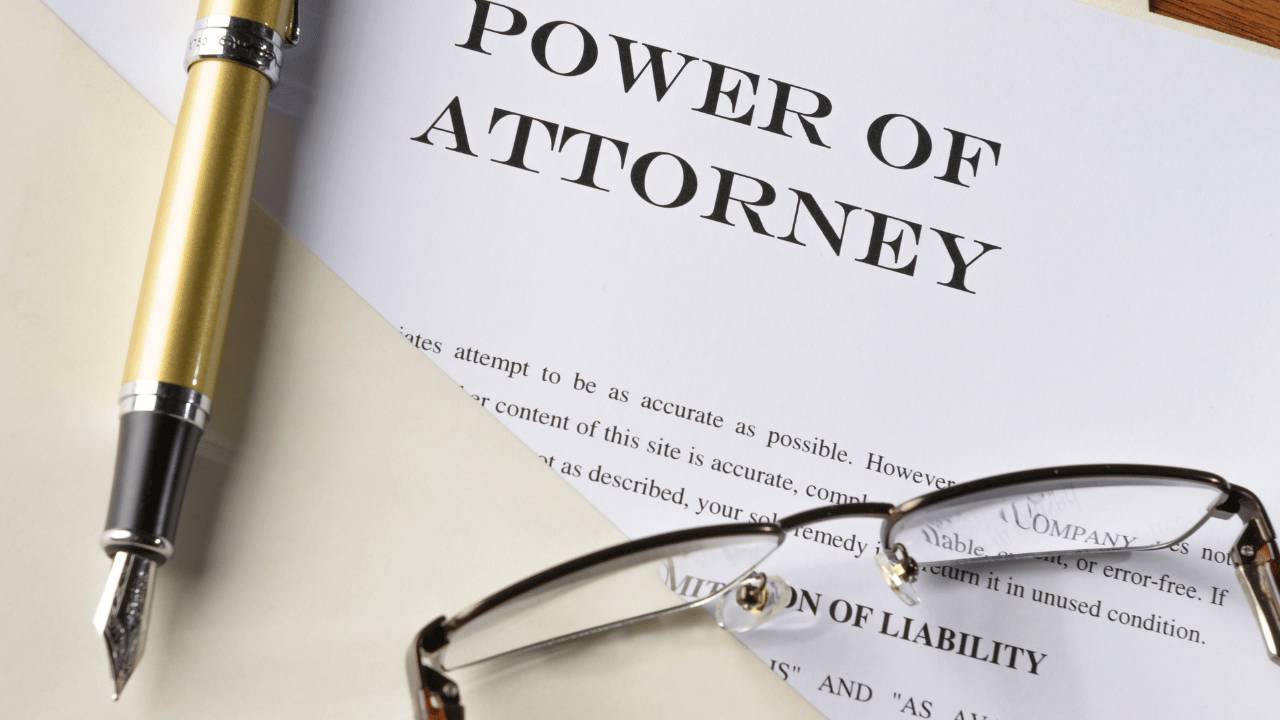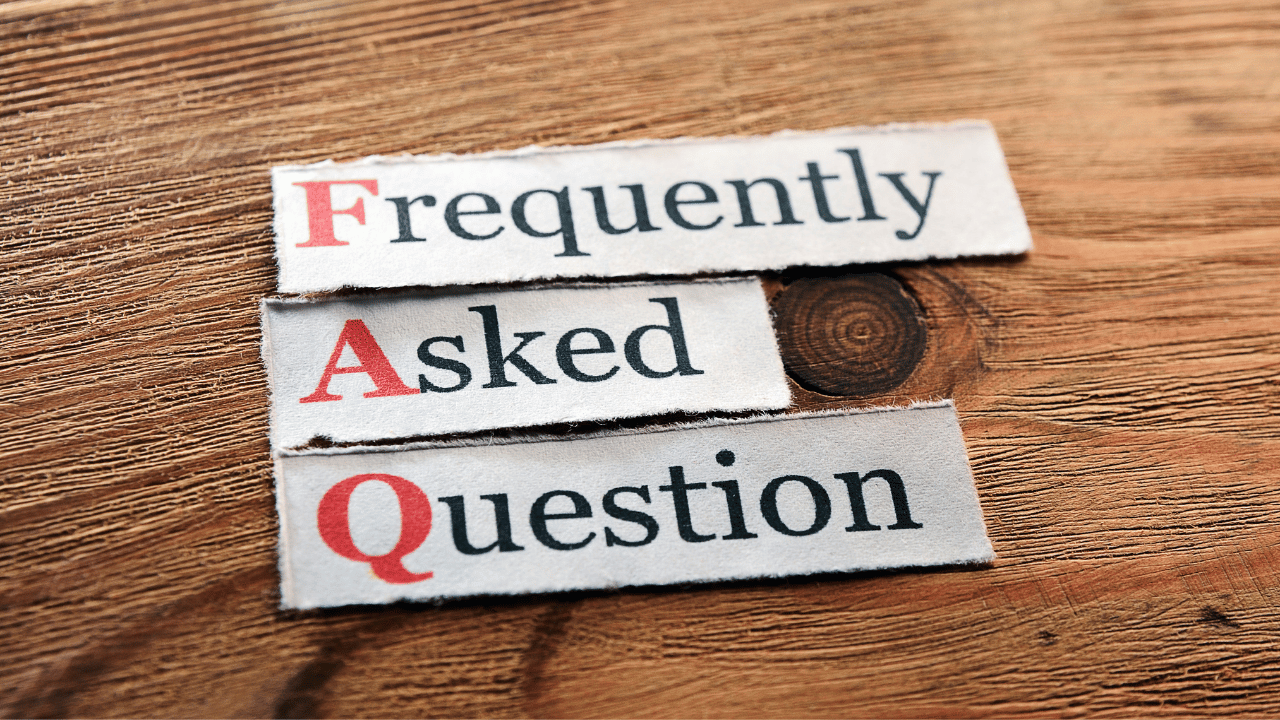Durable Power Of Attorney Michigan: What You Need To Know
Sep 26, 2023
This article about durable power of attorney Michigan by estate planning and elder law attorney Nicole Wipp is not legal advice; rather, it is general information. If you need assistance with your estate planning documents, contact our office today at (248)278-1511.
When it comes to financial affairs, it is important to have a plan in place for worst-case scenarios. Nobody can predict the future, and accidents can happen at any time, so it's crucial to plan for the unexpected. Nobody likes to think about becoming incapacitated or incapable of making their own decisions, but it is a possibility we all need to consider.
This is where a Durable Power of Attorney (DPOA) comes in. A DPOA is a legal document allowing an individual to appoint someone they trust to make financial decisions if they become incapacitated. This blog post will discuss a DPOA, why you need one, tips for choosing a power of attorney agent, and how to obtain a DPOA in Michigan.
What Is A Durable Power Of Attorney (DPOA)?
When creating your estate plan, it’s important to include a power of attorney document. A DPOA is a legal document that grants an individual, known as the agent, the authority to make financial decisions on behalf of the principal, who is the person granting the power.
The agent can only act within the scope of the authority granted by the principal. A DPOA can be effective immediately or can be triggered by a specific event, such as the incapacity of the principal.
There are several types of power of attorney, but a durable power of attorney is unique in that it remains in effect even if you become incapacitated. This means your appointed agent will be able to act on your behalf even if you cannot make decisions yourself.
Is A Durable Power Of Attorney The Same As A Living Will?
A living will and a durable power of attorney serve very different purposes. A living will is a document that outlines your end-of-life wishes, such as whether or not you'd like to be kept alive through artificial means if you're in a coma or vegetative state. It eliminates the guesswork for your family and loved ones struggling to decide on your behalf.
Another critical difference between the two documents is when they come into effect. A living will only take effect when you cannot communicate your wishes. In contrast, a durable power of attorney takes effect as soon as it's signed – this means your agent can start managing your affairs immediately if you choose to do so.
Why Do I Need A Legal Document For Financial Affairs If I Already Have Beneficiaries?
While having beneficiaries is helpful, they cannot make legal decisions on your behalf, manage your affairs, or pay bills.
Having beneficiaries does not mean you do not need a DPOA. Beneficiaries only receive assets upon your death. A DPOA is necessary to manage your financial affairs if you become incapacitated, such as in a coma or suffer from dementia.
Also, if you are incapacitated or disabled and do not have a DPOA, someone will need to petition the court to appoint a guardian or conservator to make decisions on your behalf. This is not only time-consuming, but it is also costly and can be a frustrating process for everyone involved.
Learn more about Beneficiary Designation.
Tips For Choosing A Power Of Attorney Agent
One of the biggest questions I get from clients when I am working with them on their estate plans is: how do I decide who to choose?
My answer, always, is to pick the best person for the job. But what does that mean, exactly? Below are some considerations when choosing the right person to represent you as your financial agent.
Consider Trustworthiness:
When choosing a power of attorney agent, it’s essential to consider their level of trustworthiness. This person will manage your financial affairs and make important decisions on your behalf. You want someone responsible, honest, and organized.
Choose Someone Who Understands Financial Matters:
Ensure that the person you choose as your power of attorney agent understands financial matters and has experience handling money. They should be able to manage your finances and make wise decisions regarding investments, taxes, and other financial matters.
Choose A Good Communicator:
When choosing a DPOA agent, selecting an individual who communicates well with others, including you, is essential. You need someone who is a good listener, and patient, and can communicate your wishes to others as necessary.
Select Someone You Have a Good Relationship With:
Choosing a power of attorney agent should be practical, but it's also important to consider your relationship with the person.
You should choose someone with whom you have a good relationship, someone you trust and who's available to fulfill the duties of a power of attorney. Your agent should understand your goals and wishes and be in agreement with them.
Assess Their Availability:
Your power of attorney agent should be available and make timely decisions when necessary. Consider their geographic proximity, schedule, and whether they are willing to take on the responsibility of being your agent.
This person should also be easily accessible via phone and email in case of an emergency.
Additional Durable Power of Attorney Considerations
In addition to picking the best person for the job, there are a few other "best practices" I like to share with clients when it comes to creating a durable financial power document.
Discuss Their Role with Them:
Before officially appointing someone as your power of attorney agent, it’s important to have an open and frank discussion about the role. Discuss the type of powers that will be granted, tasks assigned, and underscore the need for transparency in financial reporting. Clarify your expectations to avoid any potential misunderstanding in the future.
Choose Alternates:
It’s essential to have a backup power of attorney agent in case your primary agent is unavailable to fulfill their duties. Choose someone who can step in quickly and is familiar with your financial and legal affairs. This precaution ensures that your financial and legal matters are handled no matter the circumstances.
Seek Professional Guidance:
Choosing a power of attorney agent can be a complex process, so seeking professional guidance is always a good idea. Consult with a lawyer specializing in estate planning or elder law to ensure you make informed decisions.
 financial power of power of attorney
financial power of power of attorney
Frequently Asked Questions About Power of Attorney
Who Can I Appoint As My Agent?
Your agent can be anyone you trust to manage your finances, including a family member, friend, or a trusted professional or organization. It is important that the person you appoint understands the responsibility of being your agent and is willing to accept this role.
Before you appoint someone, have a conversation with them to ensure they are willing and able to take on this responsibility and that they are aware of your wishes.
What Legal Requirements Do I Need To Fulfill To Set Up A DPOA?
To set up a DPOA in Michigan, you must sign a legal document outlining the powers you want to give your agent.
In Michigan, the DPOA must be signed by the principal and two witnesses. The witnesses must be at least 18 years old and unrelated to the principal or the agent. Having an attorney assist you in preparing and executing a DPOA to ensure that it complies with Michigan law and accurately reflects your wishes and needs is important.
Learn more about Gift Taxes here.
What Happens If I Change My Mind?
If you change your mind about the person or institution you have appointed as your agent, or if you want to revoke your DPOA, you can do so at any time while you can still make your own decisions. Simply create a new DPOA document, sign it before two witnesses and a notary public, and notify all relevant parties that the old document is no longer valid.
What Do I Do With It After It Is Completed?
Once a DPOA is executed, it is important to keep it safe and provide copies to those who need it, such as your agent and financial institutions. It is also essential to review your DPOA periodically to ensure that it still reflects your wishes, especially if there are any changes in your life, such as a divorce or the death of your agent.
Do I Need A Durable Power Of Attorney And Living Will?
Yes, having both is essential as they serve different purposes. A Durable Power of Attorney ensures your finances are managed by someone you trust while alive. A Living Will ensures that your wishes about medical treatment are respected if you cannot communicate them yourself.
Do I Need A Lawyer To Draft A Power Of Attorney?
There is no legal requirement to have an attorney, but it is recommended to consult a trusted lawyer to make sure the document is legal and enforceable. DIY forms may not include specific language required by law, and mistakes could invalidate the document.
When Does Power Of Attorney Take Effect?
A Durable Power of Attorney in Michigan becomes effective as soon as you sign the document unless you specify otherwise.
Read more about Power of Attorney in this blog post.
 durable power of attorney
durable power of attorney
Don't Delay: Start Your Durable Power of Attorney And Other Estate Planning Documents Today!
Having a DPOA can give you peace of mind because someone you trust can make financial decisions on your behalf if you become incapacitated.
It is important to consult an attorney to ensure your DPOA is properly executed and complies with Michigan law. Don't wait until it's too late; start planning for your future today by creating a DPOA!
